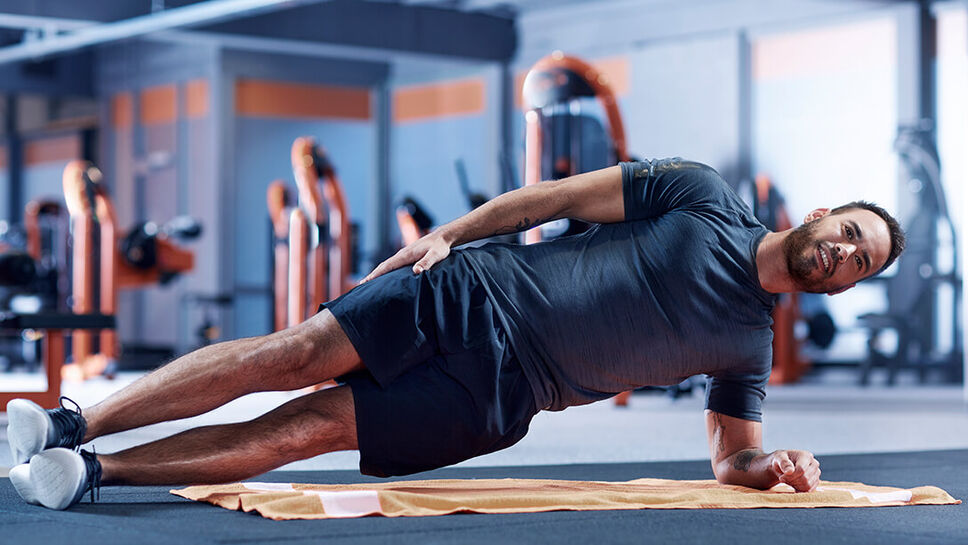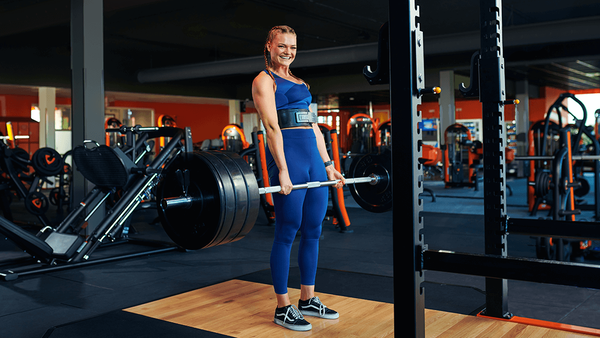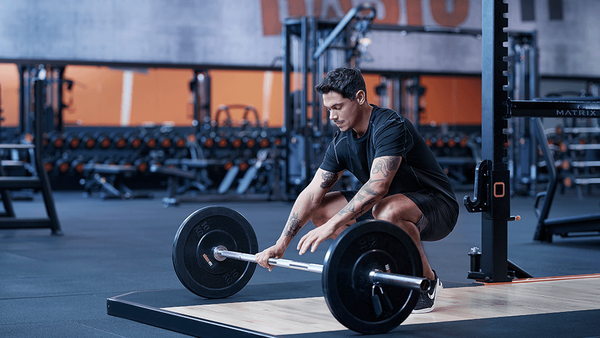Coaches are referring to more than contracting just your abdominal muscles. What we’re looking for is for you to contract the entire central area of your body from chest to pelvis:
- Pectoral
- Back
- Abs
- Hip muscles
- Gluteus
You need to activate all these muscle groups so that they form a solid core. That’s why the exercises that serve to strengthen them are called core exercises.
Activating these core muscles is essential for providing a better stability and for adopting appropriate postures whilst performing certain workouts. And if we also do this during daily activities, such as when we bend down or when we carry our shopping bags, it can also help us immensely to prevent back pain.
A strong and stable core to prevent injuries
Core exercises are part of every football, basketball and tennis training and practically of any sport. This is because physical trainers are very well aware that all the muscles in our body are connected to each other. So a strong and stable centre prevents overloads and injuries to both the lower extremities and the back. Another sports discipline in which it’s essential to activate all of these muscle groups, is weight lifting. Without a well-strengthened core, the back becomes overloaded and your risk of injury is greatly increased.
Some core exercises
I recommend that you add core exercises to all your training routines. Any of these five exercises will help you to strengthen your core muscles and prevent injury:
- The plank
- High plank
- Back extensions
- Hip lift
- Side plank
And best of all: These are exercises that you can do from anywhere!
This blog is written by one of our Personal Trainers, Joyce Mohringer.




